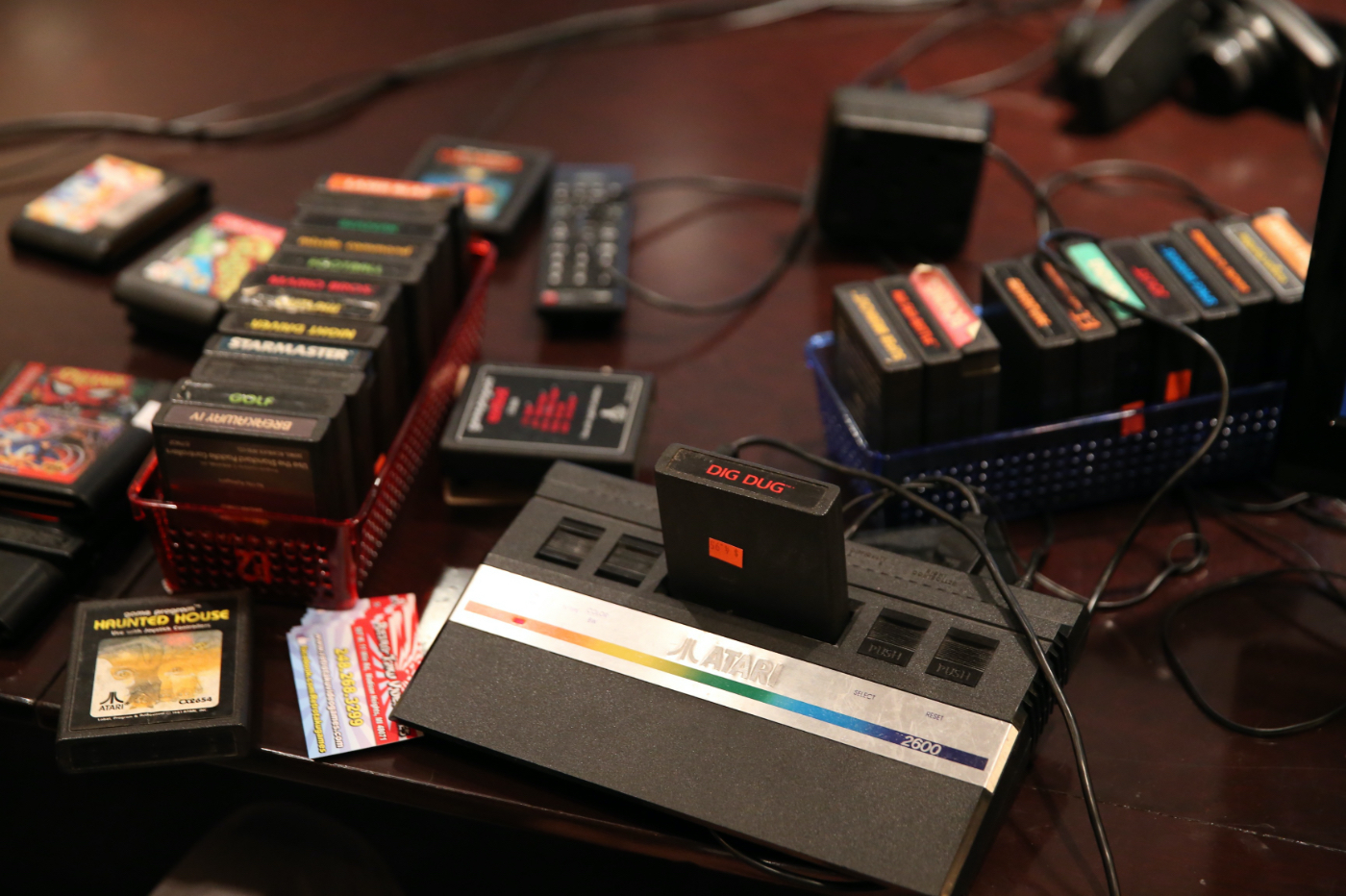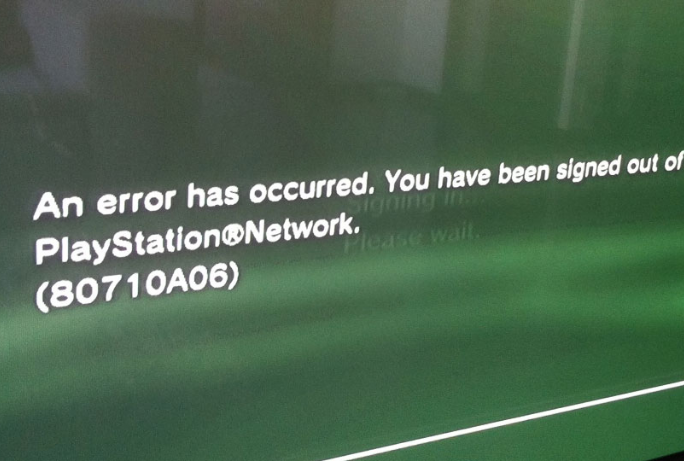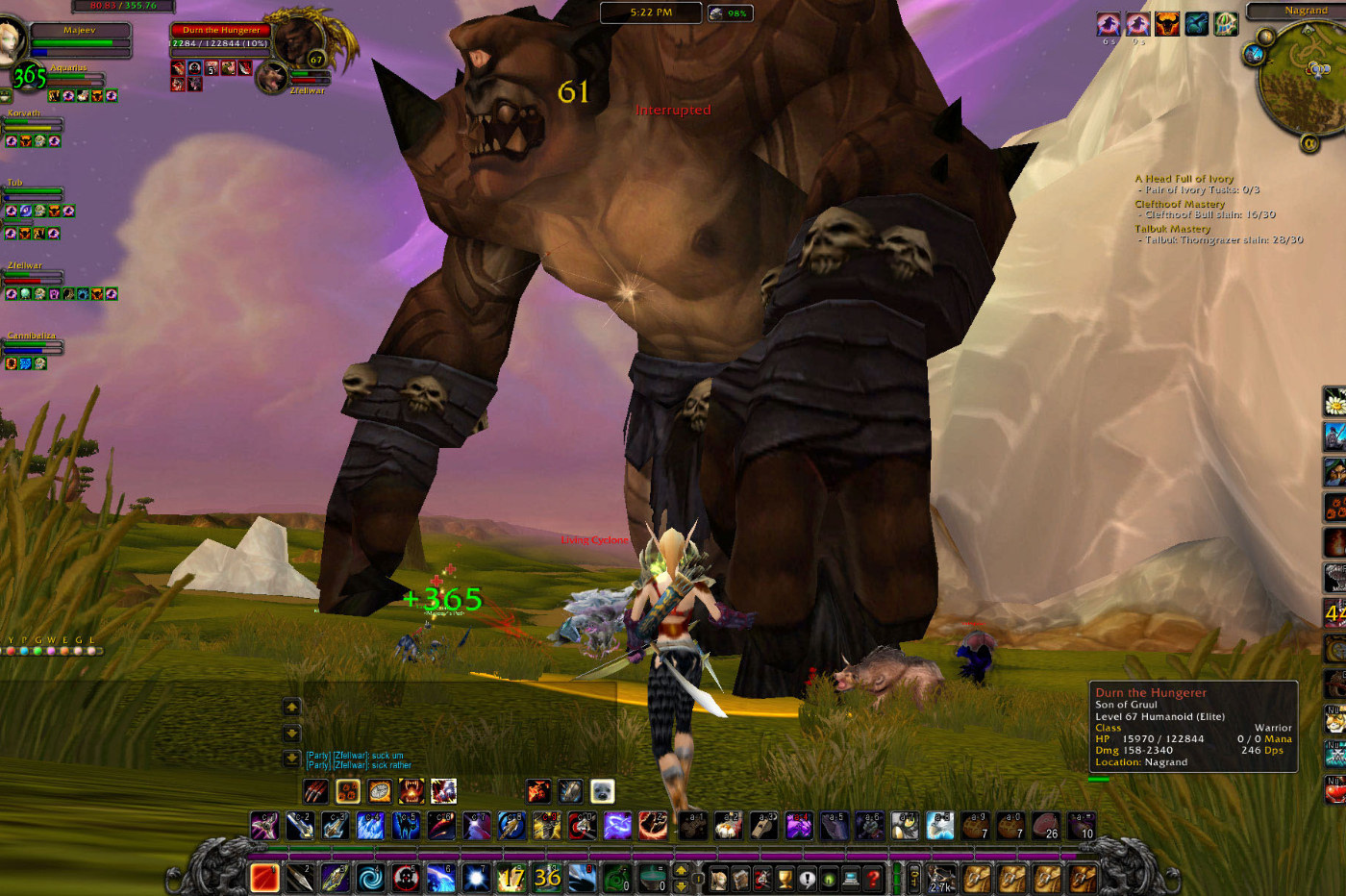The Definitive Guide to
Online Gaming
Privacy & Safety
Introduction to online gaming safety
At the turn of the century, online gaming was something reserved for dedicated PC gamers. For most of us, playing split screen with our friends was the closest we came to playing against anyone other than the artificial intelligence (AI) games generated.
Things are very different as we approach 2020. As of right now, Recent reports suggest as many as 94 million people play Playstation online on a monthly basis. Meanwhile, Xbox estimates it has as many as 65 million active users. And that doesn’t even begin to address the casual 2.4 billion mobile gamers around the world.
With so many people making themselves known to complete strangers half a world away, it’s little surprise this has become a hotspot for cyber criminals. Let’s take a closer look at the impact of online gaming, and also discover what you can do to keep yourself and those close to you safe.
94 million people play Playstation online on a monthly basis.

A brief history of video games
Early days of gaming
Would it shock you to learn the first video game was created in 1940? The Nimatron was a computerised system introduced at the World’s Fair of that year. It gave people the chance to face off against a computer in the archaic mathematical game of Nim.
It would be ten years before anything similar appeared. NIMROD (the successor to the original title) was officially the first game played on a computer, with OXO (a basic form of noughts and crosses) following soon after.
The next decade wouldn’t bring much in the way of gaming advancement. Technological focus was placed on the race to the stars, as well as the looming threat of the Cold War.
As such, developments would be slow from this point through to the 70s. Games like Spacewar! (1962) and the creation of the Brown Box (a console slightly ahead of its time) hinted at the potential of the sector, but things were taking time to get off the ground.

The 70s and 80s explosion
It wasn’t until 1972 that the video game industry began in earnest. Atari is a name which is synonymous with the early days of console gaming. Their founding was followed by the release of the first purchasable game, Pong.
This simple but effective offering would trigger an explosion of new ideas in gaming. The PLATO network provided the first opportunity to play the same game on multiple screens, while a 3D shooter named Spasim developed the capability to connect to 32 consoles at once.
The growing popularity at the start of the decade meant that by 1975 the first joystick game hit arcades. In 1977, Atari VCS lands, opening up the possibilities of using cartridges to store and transport games between consoles.
Atari’s second cultural phenomenon hit shelves in 1981, in the form of Space Invaders. This brought them back into relevancy just a couple of years before the ‘official’ creation of the internet in January of 1983.
Advancements in tech continued from this point. Perhaps none were more important than BASIC – a code created by Bill Gates which allowed programmers to code their own online games.
At the close of the 80s, the IP Multicast makes it possible for games to be streamed across the internet for the first time. As gamers headed into the 90s, a new era is dawning.

The 90s
The release of Windows ‘95, which brought faster & more affordable
Around this time, Nintendo, Sega and Atari were emerging as leaders in the world of online gaming. The problem was, they were facing the dual headache of slow internet speeds and expensive rates.
They were saved by the release of Windows ‘95, which brought faster and more affordable internet into the homes of people across the world. The first real step towards the modern age of gaming would be taken in 1999.
It was in this year the Nintendo 64 first came to market. This was the first console with the inbuilt capability of reaching out and connecting to its peers.

Modern Gaming
This networking effect has persisted into the modern era of gaming. The Gamecube, Playstation 2 and Xbox were all introduced within the first 2 years of the 21st century.
The latter of these consoles, the Xbox, also gave birth to the game Halo. This offering would transcend online gaming, rejuvenating the LAN party scene, which saw players sharing a connection to play against one another.
By the mid-noughties, console gaming had consolidated itself as a staple of the gaming world. The next evolution mirrored the changing shape of society, with mobile games becoming mainstream. Arguably the most impactful of breaking through the glass door was Angry Birds, releasing in 2009.
As we move forwards, mobile and console games are being challenged by a new rival – virtual reality. VR Gaming immerses a player in the world they’re occupying, providing a different type of experience to anything before.
As the sector continues to advance, we can only imagine what the future of the industry has in store.

Online gaming statistics
In a sector populated by data, it’s perhaps no surprise online gaming possesses a myriad of fascinating factoids. Perhaps the most mind-boggling of these are the amounts of time people are playing.
In 2019, the average gamer allotted as much as seven hours and seven minutes a week to playing online. That was an increase of 19.3% from the previous year.
And it’s those aged 26-35 who are playing the most. They sit above the average, with eight hours and 12 minutes dedicated to gaming every seven days.
Here’s how the breakdown looked across all demographics:
Age Range
18-25
26-35
36-45
46-60
60+
Hours a week played online
7.78
8.21
7.76
6.32
5.63

This upward trend was no doubt thanks to the rising prominence of mobile gaming. It’s anticipated that by 2021 mobile gaming will have experienced a 30% growth in popularity from the previous decade.
This figure is supported by the number of people who are willing to download a game, as opposed to buying a physical hard copy. In 2019, download rates showed:
Age Range
18-25
26-35
36-45
46-60
60+
% of people downloaded games
65.3%
57.6%
61.9%
66%
68%
Perhaps unsurprisingly, it’s the most dedicated demographic of gamers who less frequently download a game. While casual gamers – especially those aged 45 and over – are more willing to.
This change in stances in platform usage has directly led to a shift towards smart devices as the dominant gaming device.
Device
Console
Computers
Smart-phones
Tablets
Handheld Devices
% of gamers usage
29%
28%
25%
19%
11%
That means as many as 44% of current gamers are using smart devices as their go-to.
This is far from a UK-exclusive development. Research shows people all over the world are using mobile devices more frequently than consoles. Mobile games are here, and they’re not going anywhere:


Notable online gaming controversies
With gaming now at the forefront of UK culture, the sector has become more of a target for cyber attacks. Gaming involves the storage (and, on occasion, transfer) of a lot of data.
Over the years, there have been infamous examples of gaming networks becoming exposed to hackers and data raids. Let’s take a look at some of the most notable.

Sony Playstation Network (2011)
Millions of people use Sony’s Playstation Network to play video games on a daily basis. That’s why it was huge news when as many as 77 million accounts were hacked in 2011.
Personal information like names, home addresses and passwords were stolen, as well as credit card details in some instances. The site was down for a month, and it was estimated Sony lost as much as $171m during that time.
77 million Playstation Network accounts were hacked in 2011
Gamigo (2012)
11 million accounts on the German-based gaming website were hacked back in 2012. These were posted onto a forum, alongside a series of personal email addresses.

The Christmas console hack (2014)
As if the events weren’t bad enough for Sony, they (alongside Microsoft) would experience a second hack on December 25th 2014 by the rather bizarrely named hacktivist group, The Lizard Squad.
In this instance, no data was stolen. Instead, the hackers were trying to purposefully crash the Xbox and Playstation servers at a time when millions of people would have been playing new games.
South Korean leaks (2014)
Various attacks were carried out across South Korea in 2014. It was reported at one stage that as many as 70% of the population aged between 15 and 65 had had their data stolen in some form. Supposedly, the entire event was a means of stealing online gaming currency, as opposed to real-world cash.
Sounds scary, right? Having your money – or data – stolen is an uncomfortable thought, but there are ways to protect yourself.

Protecting your data when playing online games
Placing yourself online puts you at risk of an attack. But it’s wrong to hide away from doing something you enjoy just because there’s a potential risk. The best way to keep your private information safe is to understand what you’re at risk of, and then learn how to prevent it.
Cyber attacks you’re at risk of
While gaming attacks are similar in nature to most forms of data breaches, the unique nature of the sector has seen the rise of individualistic forms of cyber crime. In order to combat a threat, you need to know what to look for.
Here are some of the worst forms of cyber attack you can expect to face when you’re playing a game:
Gaming malware
Malware code can be added to the data of any game which has been pirated (or just isn’t a legitimate supplier) to access your personal details. It’s for this reason you should always try and play games which are bought in hard-copy form from legitimate vendors, or downloaded from official gaming platforms.
In some instances, games might even be created with the specific intention of spreading malware. Even buying a game secondhand from someone you know might be a worry if you don’t know where they got it from.
In-game ransomware
It might sound silly, but some people are willing to pay a lot of money for the return of their account after it’s been stolen. That’s why some ransomware programmers target gamers who are prone to buying third-party power-ups.
For games like World of Warcraft or Skyrim, hours of dedication might have gone into the creation and powering up of your avatar. As such, they know they’ll be able to charge a real-world sum for the return of an account.
Keyloggers
(password stealers)
These are most commonly sent out through private messages. Someone might ask you to test a beta version of a game, or even just be sending you to a link they think you might like.
If this happens when you’re using a computer, any password you type could be at risk. That means far more than just your gaming account might be at risk.
Power-up scammers
We’ve already discussed the extent people are willing to go to to improve their character or gamer profile. Such is the outcry for this, third-party companies have been created to “gold mine” – earn in-game currency to sell to customers for real-world cash.
Unfortunately, not all of these enterprises are above board. Some are set up with the intent of targeting you when you enter your financial details. While it might be tempting to power-up your character at the click of a button, try to avoid these third-party businesses.
Phishing campaigns
These are a common type of cyber attack, regardless of industry. Most often, a scammer will send an email or private message through the guise of a respected organisation.
Once you click on the link in question, you’ll be taken to a fake landing page. From here you’ll be asked to enter personal details. Doing so puts your account in the hands of an attacker.
Public Wi-Fi
Naturally, anything you do over public Wi-Fi networks is open to the risk of an attack. These are often not encrypted, meaning data can be accessed far more easily by anyone looking to target them.
Now you have a better understanding of what you’re at risk of, let’s see what steps you can take to prevent them from becoming an issue.

How to prevent a cyber attack
It’s impossible to guarantee you won’t fall victim to a hacker in some guise, but there are steps you can take to reduce the chances of becoming a victim.
Phishing
If any email takes you to a page where you’re required to log in (unless you’ve specifically asked for a password change), you should be suspicious. Most organisations won’t ask you to tell them your password for no reason.
The header of the email will give you a good understanding of whether the sender is legitimate or not. Failing that, think about getting directly in contact with the company in question. Talk to a chat support operative or even call them directly.
Malware
Having a strong antivirus system in place is a good way to stop a malware before it has the chance to take hold. A lot of modern computers will come with these already built-in, but it’s still worth making sure.
It’s also on you to use common sense, though. For example, never download anything from a site you’re unfamiliar with. Likewise, don’t install software you aren’t completely sure about.
Keyloggers
It sounds like a simple fix, but having a strong password is the best way to make a keylogger’s job more difficult. Don’t pick something close to you, or an obvious word. You can also use keychain tools to automatically generate a password.
Again, make sure to never enter your personal details on any page you aren’t sure about. This is the easiest way for any cyber criminal to infiltrate your personal information.
Public Wi-Fi
While it’s encouraged you try and avoid public Wi-Fi when playing games, if you do, make sure to use a secure VPN (virtual private network). These can provide an additional layer of encryption, while also hiding your true location.
While the introduction of GDPR (the general data protection regulation) has meant that more is being done behind the scenes to ensure data is being protected, it still falls on you to do what you can to ensure you’re not putting yourself in plain sight of the criminals.

Recovering when your data is stolen
Unfortunately, even your best efforts can’t always prevent the worst from happening. Hackers are clever, which means there’s a chance they’ll be able to infiltrate even the best of defences.
If you do find yourself the victim of an attack, there are steps you can take to ensure you recover from the situation.
First and foremost, it’s on you to report the crime. Depending on where you live in the UK, there are two places you can report the crime to:
England, Wales & Northern Ireland
Scotland
Give them as much detail as possible about what happened. Be as honest as possible about any avenues which a cyber criminal might have targeted you through. The more they understand about what’s happened, the better chance they have of identifying how to recover your account.
Also be sure to let the account provider (most likely Microsoft or Sony if you’re playing on a console) know what’s happened. They’ll help to recover your profile.
Once you have your account back, try to work out what you can do to recover further from the attack. This is a good chance to work out what’s been done, and who else you might have to inform.
Think about:
Account security settings
Go into your security settings and try to spot any apps which aren’t familiar, but have been given access to your account. Make sure to take note of any which appear unusual.
You should be able to find out the exact time, date, IP address, browser and device type it was last logged into. Disconnect anything you don’t recognise and report the activity.
Check account activity
Along the same lines, check your accounts general activity. That means activity your account carried out in the game itself (such as purchase history).
This will give you a good idea of exactly what was done and when. This is again hugely valuable information if you’re still in the process of working with a cyber crime policing agency.
Scan your devices
You might think it’s too late at this stage for an antivirus scan to be much help. In reality it could provide a clearer picture of just how the cyber criminal was able to access your personal information.
Knowing where they got in could make a huge difference when it comes to preventing the same thing from happening in the future. You’ll know where to strengthen your account, and could even plug up a potential hole there and then.
Recovery email
Setting up a recovery email, if you haven’t done so already, it will mean you can find a route back into your account if you’re locked out again in the future.
This should be to an account which has no connection with the one which has been attacked.
Who you need to tell
Use this time to work out who needs to know about the attack. You should already have informed the authorities, but also consider banks and even people in your friends list.
The hacker might have gotten access to your gaming contacts. If that’s the case, it’s probably best you let them know as soon as possible. This gives them a chance to safeguard against an attack.
While it’s never good to fall victim to a cyber crime, don’t panic. Follow this advice and you should be on the road to recovery.

Staying safe when playing online
It’s not just a breach of data which can have an impact on your online safety. Gamers, often kids, can become the victim of more personal, psychological attacks.
Cyberbullying is said to have an impact on as many as 1 in 3 young people across the world. But what can be done to combat it?
Let’s take a look at just how much of an epidemic this unwanted phenomenon is becoming, as well as the steps you can take to protect your child while they’re gaming.
1 in 3 young people across the world are impacted by Cyberbullying

Cyberbullying statistics
Cyberbullying extends beyond just being called mean names online. Harassment and even stalking are sometimes part of being targeted when playing a video game.
Figures show that one in every two online gamers gets bullied at some point. In fact, 57% of people surveyed out of a pool of 2,500 said they’d faced some form of bullying. As many as 22% even went as far as to say they stopped playing games altogether because of the experience.
Other figures from the study also showed:
47%
of players had been threatened in an online game
38%
said they had been hacked while playing a game
74%
of people who’d experienced an issue wish it had been taken more seriously
A separate study looking at a more global impact would also reveal some alarming statistics. Mental health problems were arguably where the biggest long-lasting issues caused.
The report showed:
41%
of people who were cyberbullied experienced social anxiety after
37%
developed a form of depression
26%
deleted their abused social media account
25%
stopped using social media altogether
With figures like this, it’s little surprise that more people are taking a stand against the growing threat. Let’s see what you can do to protect both yourself and your kids when playing online.

How to prevent cyberbullying
It’s hard to know who you or your kids are talking to online. But there are ways to prevent a problem from occurring. Here are some of the best methods for preventing a psychological attack:
Educate yourself and others
The most effective way to prevent an attack is by knowing exactly what to look for. Look into past examples, and also try to find out where and when a cyberbully is most likely to strike.
Once you have the information, it never hurts to share it with friends and family. Spreading what you’ve discovered will make them safer.
Talk to anti-cyberbullying communities
Specialist organisations have been set up with the intention of preventing cyberbullying from having an impact on more people.
These communities will not only help those who’ve already been a victim to recover, but also focus on giving people the necessary information to stop an attack from happening in the first place.
Stay away from total strangers
While it might seem like common sense, it’s important to do what you can to separate yourself as much as possible from strangers.
If someone you don’t know approaches you during a game, you can politely decline an invite to chat. They may be a friendly person, but it’s better to avoid putting yourself in a potentially risky situation.
Google yourself
This sounds odd, but it can actually be really useful for showing what kind of personal information appears about you.
Cyber criminals and bullies alike will use this information to target you. See what’s showing up, and if it’s anything which could be used against you take it down or make it more private.
Log out of public computers
People don’t use public computers as much as they did in the past, but it’s still important to log out from one when you do.
Failing to do so gives someone the chance to post false information about you online. They might also change your password and log you out of your account.

What to do if you become a victim
For all your best efforts, sometimes you’ll fall victim to an online attack. It can be a horrible experience, but there is a way to get past the experience. Let’s look at the first steps you should take when you become a victim.
Talk to someone about it
Don’t feel like you can’t talk to someone about what happened. It might be hard, or even embarrassing, but talking to someone you trust about it can be very helpful.
They can reassure you, or even give you advice about what to do next. The quicker you tell someone, the faster your problem might be resolved.
Block the person
Cutting the person in question out of your life will have an instant impact. You can often report a person at the same time you block them.
This not only stops the harassment instantly, but also gives the social media or gaming platform in question the chance to deal with the offender.
Report them to the necessary authorities
In extreme cases, you might even want to take your complaint to law enforcement.
This won’t always be the case, but if harassing comments persist and extend into the real world, you might have to talk to the police.
Save all evidence of the attack
If you’re going to report your experience, make sure to keep a full log of everything that’s happened.
That means taking screenshots, downloading chats and maybe even taking note of the time and date when something was said.
Stop replying
If you find yourself in a position where you can’t block someone, just ignore them. As long as they don’t have any personal information about you, cutting them out of your life shouldn’t matter.
If you find out your friend, family member or child has become the victim of cyberbullying, make sure to follow all these steps. It might also help to:
Reassure them
Being a supportive shoulder to cry on will make a huge difference for anyone going through a difficult time like this.
Still give them some online freedom
It might be tempting in the case of kids to restrict how much time they’re spending online. In the 21st century, most children will communicate via online platforms.
Be careful and monitor what they’re doing, but don’t outright ban the use of the internet.
Listen to and address their concerns
Make sure you’re an active listener, specifically addressing the concerns they have about everything that’s happening.

Tips for parents whose kids are playing online
It can be a scary prospect for parents to let their kids freely game online. While they will probably be alright, it’s only natural to worry about what they’re doing and who they’re talking to.
If you’re someone who worries about the wealthfare of their kids, be sure to:
Monitor their online activity
That doesn’t mean scrupulously checking every site they visit. Using something like a parental blocker can stop a child from going on sites they shouldn’t.
When it comes specifically to video games, make sure to only buy them games which are within their guided age range.
Learn about the games they’re playing
The more you know about the game they’re on, the more understanding you’ll have of where someone might be able to give them unwanted attention.
It could even be worth trying the games yourself. Play it for a bit and see how people might reach out to you.
Find out who kids are playing with
This is another very important step. You might assume your kids only play with their friends, but what if that’s not true?
Try to get a rough picture of who they’re talking to online. It’s an awkward question to ask, but one that needs asking nonetheless.
Discuss using digital boundaries
It’s important your kids understand what they should and shouldn’t be saying to strangers online. Make it clear what kind of information they’re allowed to discuss, and what they aren’t.

Useful links
We’ve covered a lot here, but it never hurts to do some background reading. Find out more about the world of online gaming safety by consulting these useful secondary sources.

